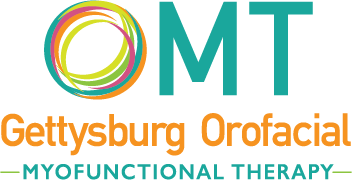Signs You May Need Braces
Are you wondering, "How can I tell if I or my child needs braces?" You're not alone. Four million Americans, mainly teens (80%), wear braces, and an additional 25–50% of all children will need braces at some point in their lives. Around 1.6 million adults also wear braces, making up about 20–25% of all orthodontic patients.
While many people believe that the signs of needing braces are obvious, there are more indicators than just misaligned teeth. Let’s explore them!
Misaligned or Overlapping Teeth
The most obvious sign that you may need braces is if you have noticeably crooked, crowded, or overlapping teeth. If left untreated, it's easier for food and bacteria to get trapped between them, which can lead to gum disease. In severe cases, overcrowded teeth can cause temporomandibular joint (TMJ) disorders, leading to jaw tenderness and more severe pain.
Over/Underbite
An overbite occurs when your upper front teeth overlap your lower front teeth too much. An underbite happens when your lower teeth stick out farther than your upper teeth. Both can cause a variety of different issues, including difficulty chewing, sleep apnea, tooth decay, jaw and ear pain, TMJ, and more.
Crossbite
Similar to over/underbites, a cross bite occurs when one or more teeth do not align properly on the sides when the mouth is closed, affecting a single tooth or a group of teeth. A crossbite may be harder to identify or notice to the untrained eye.
An untreated crossbite can result in stressful and uneven biting forces, which can cause frequent headaches and migraines due to stress on the jaw joint and muscles, as well as teeth clenching or grinding. Additional side effects include receding gums, broken teeth, fractured fillings, and tooth loss.
Difficulty Chewing or Biting
If your teeth don't fit together as they're supposed to, it can make eating difficult. You may notice that your jaw clicks or makes noises when you chew, or that you feel stress or fatigue in your jawline after chewing. When eating or chewing, especially something hard, with a misaligned bite, it will put unequal pressure on some teeth, causing them to become strained. This could result in cracked or fractured teeth over time.
Believe it or not, orthodontic treatment can contribute to better digestion by improving chewing and biting functions, making it easier to break down food and absorb nutrients.
Speech Issues
If you experience speech impediments such as lisping, pronunciation difficulties, and slurred speech, it may be linked to "dental misalignments," such as spacing or spaces between your teeth. Orthodontic treatment can help correct these issues and improve speech clarity. By addressing the underlying dental problems, orthodontic treatment can empower individuals to communicate more effectively and participate confidently in both social and professional interactions.
How Gettysburg Dental Associates Can Help
The American Association of Orthodontists recommends a child first visits to the orthodontist no later than seven years old. However, life happens, and there’s no limitation on when you start your journey to a smile you can feel confident in!
At Gettysburg Orthodontics, a division of Gettysburg Dental Associates, we take pride in offering exceptional patient-centered care, state-of-the-art technology, and personalized treatment plans that brighten and transform smiles – and confidence.
From your initial consultation to the day your treatment plan is complete, our talented and friendly team prioritizes the care and comfort of each patient.
Contact us today to make an appointment with Dr. David Fiero, Orthodontist.






